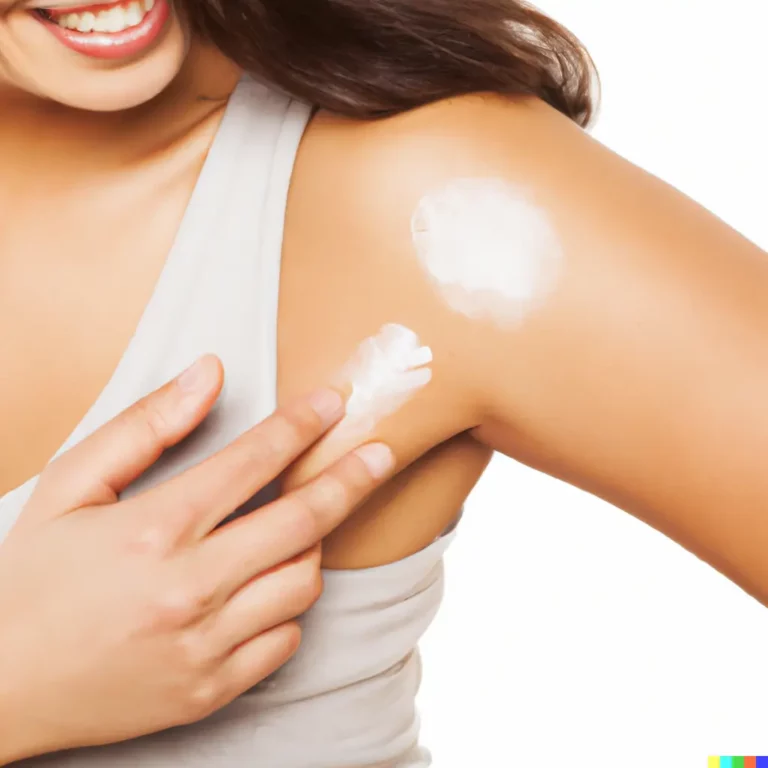Why is my scar so itchy?
If you’ve recently undergone surgery or suffered an injury that resulted in a scar, you may have noticed that your scar is incredibly itchy. This can be a frustrating and annoying experience, especially if you’re trying to leave your scar alone to heal properly. So, why is your scar so itchy, and what can you do about it?
In this blog post, we’ll delve into the reasons why scars can be itchy, as well as provide some tips for managing the itchiness and helping your scar to heal properly.
Disclaimer : Please note that this blog post is for informational purposes only and is not intended to be a substitute for professional medical advice, diagnosis, or treatment. If you have any concerns or questions about your health, please contact a qualified healthcare professional. The information contained in this blog post may not be suitable for everyone and may not be applicable to your specific situation. The author and publisher of this blog post are not responsible for any errors or omissions or for any actions taken based on the information provided in this blog post. Always seek the advice of your doctor or other qualified healthcare professional with any questions you may have regarding a medical condition.
What Causes Itchy Scars?
There are a few different reasons why a scar may be itchy. One reason is that the skin around the scar is still healing and regenerating new skin cells. As the skin cells regenerate, they can cause the scar tissue to feel itchy. This is especially common in the first few weeks after the injury or surgery.
Another reason for itchy scars is the presence of scar tissue itself. Scar tissue is made up of collagen fibers that are laid down in a different pattern than normal skin. These fibers can be more dense and thick, which can make the scar feel itchy.
Additionally, the body’s immune system plays a role in the itchiness of a scar. When the skin is damaged, the body sends immune cells to the area to help repair the damage. These immune cells release chemicals that can cause the scar to feel itchy.
How to Manage Itchy Scars
If your scar is itchy, there are a few things you can try to manage the itchiness and help your scar to heal properly.
First, try to keep your scar moisturized. Dry, flaky skin can be very itchy, so using a moisturizer can help to keep the skin hydrated and reduce the itchiness. Look for a moisturizer (affiliate link) that is specifically designed for scar treatment (affiliate link), as these products often contain ingredients that can help to soften and smooth the scar tissue.
Another tip for managing itchy scars is to avoid scratching the scar. It may be tempting to scratch the itch, but this can actually damage the scar tissue and delay the healing process. Instead, try using a cold compress or taking an over-the-counter antihistamine to help reduce the itchiness.
If the itchiness is severe or persists for an extended period of time, it’s a good idea to talk to your doctor. They may be able to recommend a stronger medication or other treatment options to help manage the itchiness and promote proper healing.
Preventing Itchy Scars
In addition to managing the itchiness of a scar, there are also steps you can take to help prevent itchy scars in the first place.
One of the most effective ways to prevent itchy scars is to keep the scar clean and well-moisturized. This helps to prevent infection and keep the skin hydrated, which can reduce the risk of itchiness.
It’s also a good idea to protect your scar from the sun. UV rays can damage the skin and cause the scar to become itchy and inflamed. Applying a broad-spectrum sunscreen with a high SPF to your scar can help to protect it from the sun’s harmful rays.
Finally, following your doctor’s instructions for scar care is important. This may include using scar treatment products or massaging the scar to help soften and smooth the tissue. By properly caring for your scar, you can help to prevent itchiness and promote proper healing.
When to See a Doctor
While it’s normal for a scar to be itchy during the healing process, there are certain situations where it’s important to see a doctor.
If the itchiness is severe or persists for an extended period of time, it’s a good idea to talk to your doctor. They may be able to recommend a stronger medication or other treatment options to help manage the itchiness and promote proper healing.
It’s also important to see a doctor if you notice any other unusual symptoms, such as redness, swelling, or discharge around the scar. These could be signs of an infection or other complication, and it’s important to get them treated as soon as possible to prevent further damage or delay in the healing process.
In addition, if you have a scar that is particularly large or appears to be healing poorly, it’s a good idea to see a doctor. They can assess the scar and provide recommendations for treatment or refer you to a specialist if necessary.
Conclusion
Overall, itchy scars are a common occurrence after injury or surgery. While it can be frustrating, there are steps you can take to manage the itchiness and help your scar to heal properly. By keeping the scar clean and moisturized, protecting it from the sun, and following your doctor’s instructions, you can reduce the risk of itchiness and promote proper healing. If you’re concerned about your itchy scar or are experiencing other unusual symptoms, it’s important to see a doctor for further evaluation and treatment.






